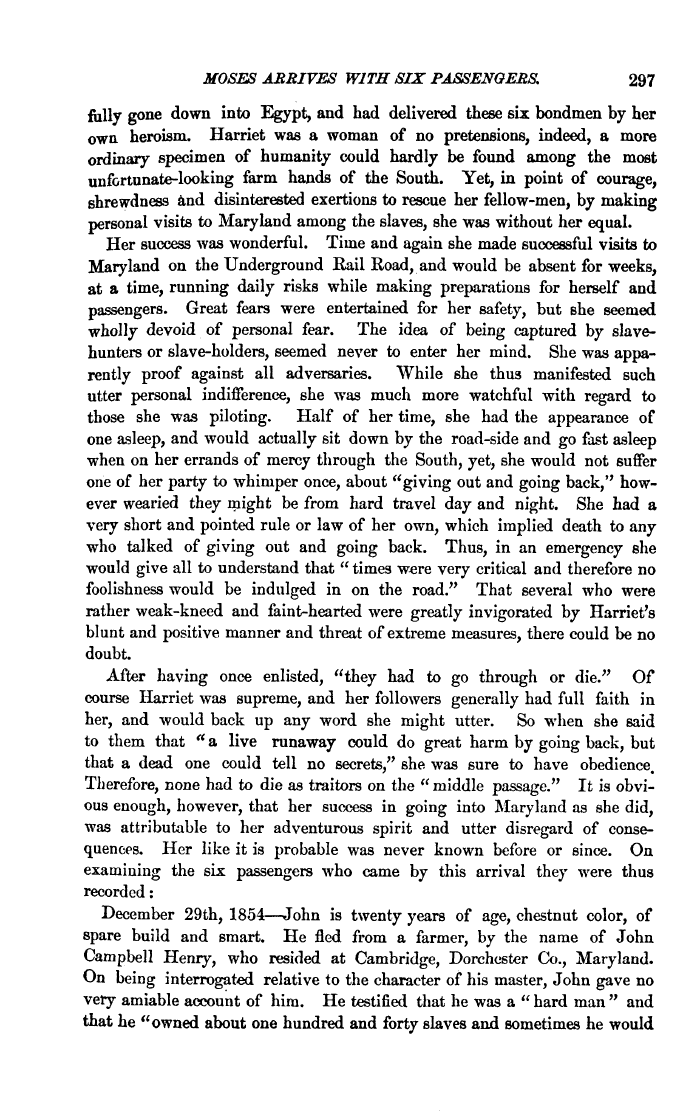 |
||||
 |
||||
| MOSES ARRIVES WITH SIX PASSENGERS. 297 folly gone down into Egypt, and had delivered these six bondmen by her own heroism. Harriet was a woman of no pretensions, indeed, a more ordinary specimen of humanity could hardly be found among the most unfortunate-looking farm hands of the South. Yet, in point of courage, shrewdness &nd disinterested exertions to rescue her fellow-men, by making personal visits to Maryland among the slaves, she was without her equal. Her success was wonderful. Time and again she made successful visits to Maryland on the Underground Rail Road, and would be absent for weeks, at a time, running daily risks while making preparations for herself and passengers. Great fears were entertained for her safety, but she seemed wholly devoid of personal fear. The idea of being captured by slave-hunters or slave-holders, seemed never to enter her mind. She was apparently proof against all adversaries. While she thus manifested such utter personal indifference, she was much more watchful with regard to those she was piloting. Half of her time, she had the appearance of one asleep, and would actually sit down by the road-side and go fast asleep when on her errands of mercy through the South, yet, she would not suffer one of her party to whimper once, about "giving out and going back," however wearied they inight be from hard travel day and night. She had a very short and pointed rule or law of her own, which implied death to any who talked of giving out and going back. Thus, in an emergency she would give all to understand that " times were very critical and therefore no foolishness would be indulged in on the road." That several who were rather weak-kneed and faint-hearted were greatly invigorated by Harriet's blunt and positive manner and threat of extreme measures, there could be no doubt. After having once enlisted, "they had to go through or die." Of course Harriet was supreme, and her followers generally had full faith in her, and would back up any word she might utter. So when she said to them that " a live runaway could do great harm by going back, but that a dead one could tell no secrets," she was sure to have obedience. Therefore, none had to die as traitors on the " middle passage." It is obvious enough, however, that her success in going into Maryland as she did, was attributable to her adventurous spirit and utter disregard of consequences. Her like it is probable was never known before or since. On examining the six passengers who came by this arrival they were thus recorded: December 29th, 1854óJohn is twenty years of age, chestnut color, of spare build and smart. He fled from a farmer, by the name of John Campbell Henry, who resided at Cambridge, Dorchester Co., Maryland. On being interrogated relative to the character of his master, John gave no very amiable account of him. He testified that he was a " hard man " and that he "owned about one hundred and forty slaves and sometimes he would |